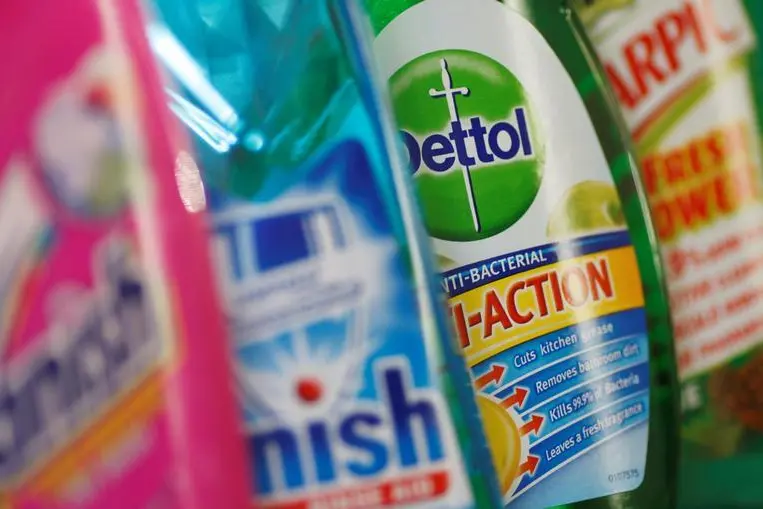PHOTO
LONDON - If admitting a problem is the first step to recovery, then Reckitt Benckiser is a good patient. The maker of Gaviscon antacid disclosed serious operational problems on Tuesday, tracing some of them back to a very large meal, the $17 billion purchase of baby food maker Mead Johnson in 2017. The absorption pains are likely to persist for some time.
Along with announcing a weak 1.6% year-on-year increase in comparable revenue in the third quarter, the $54 billion British-headquartered company cut its 2019 revenue growth target for the second time. What had once been 2-3% growth is now 0-2%, in other words perhaps nothing at all.
The main current problem is a supply system in the over-the-counter medicines business which is coping badly with retailers who are not expecting a bad flu season. Revenue contracted by almost 7%. Strength in the hygiene and home division is not enough to compensate.
But the problems seem to be more systemic. Adrian Hennah, who will retire as chief financial officer next year, explained that management had underestimated the difficulty of integrating Mead Johnson into Reckitt’s existing health unit. It is hard to keep everything functioning smoothly in a portfolio ranging from Durex contraceptives to infant formula.
The arrival of new Chief Executive Laxman Narasimhan provides an opportunity to face past excess. But optimising operations in a sprawling and diverse business is a much more daunting challenge than a light flu season. For example, Reckitt is still dealing with problems in Korea, where its humidifier sterilisers were linked to deadly lung injuries.
The internal purification comes along when the external environment for consumer goods giants is hostile. Overall demand growth in developed markets is slow and probably slowing, while the internet allows smaller outfits to compete more effectively than in the past. Narasimhan will set out his longer-term strategy in February. He has many symptoms to treat.
CONTEXT NEWS
- British consumer goods company Reckitt Benckiser on Oct. 22 announced revenues of 3.3 billion pounds in the third quarter. This was a like-for-like revenue increase of 1.6% over the same period in the previous year. Sales of over-the-counter medicines fell by 6.8%, and the other health category, which includes the Durex and Dettol brands, declined by 2.5%.
- The company downgraded its like-for-like net revenue growth target to 0-2% from 2-3%, blaming the reduction in retailer inventory levels of seasonal products in the third quarter and the uncertainties of the season and associated stocking. It also said it expected a modest decline in adjusted operating margin in 2019, having previously forecast the metric to remain flat.
- Shares in Reckitt Benckiser were down 4.6% at 56.04 pounds by 0850 GMT on Oct. 22.
(Editing by Edward Hadas and Oliver Taslic)
© Reuters News 2019





















